The 5 Hazards of Grinding Your Own Beef
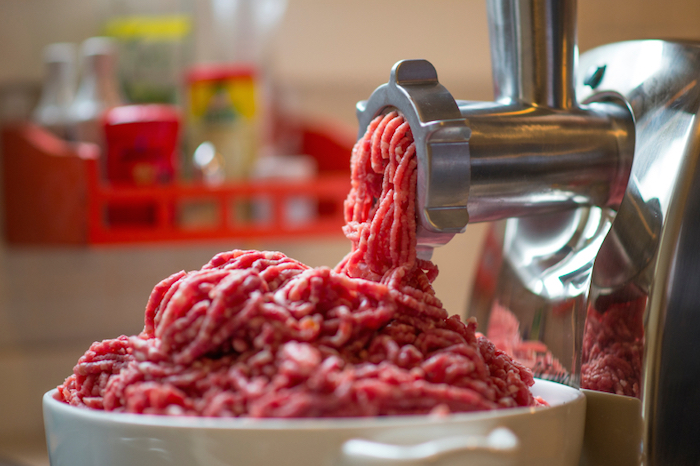
There is something indescribably cool about grinding your own Burger meat. Whether it’s just a sense of DIY accomplishment or some deeper, atavistic trigger, twisting that gear just feels good.
Trust us, we know, that’s how this company started.
But how efficient is it to grind your own Burgers for your restaurant? It’s definitely fun to do it at home or if you’re just trying a one-off project, but the more you rely on it as a restaurant, the greater the complications become.
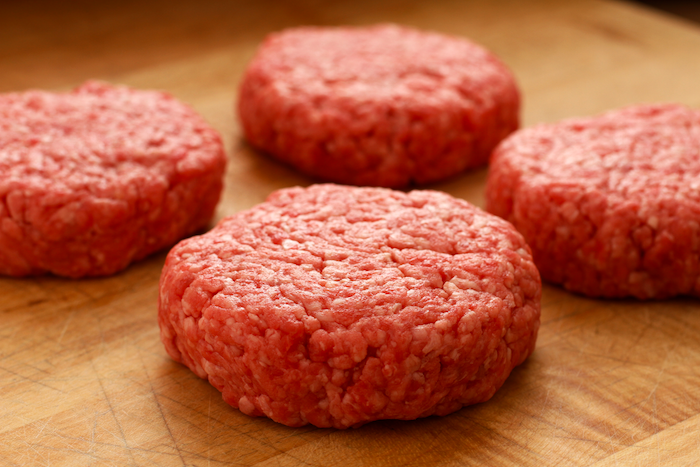
In the complex and constantly changing world of food service, those complications are the last thing you want to introduce into your kitchen. Let’s take a look at what they are.
1. Age Of Materials
You could be getting your meat from a local butcher, a food distributor, or directly from a fabricator (the people who cut large pieces of beef after the harvest). But the question is: How old is the meat they are selling you, and is it always the same? The older the meat, the higher the bacteria count.
Typically, a local butcher could be the last business in the chain to get their cuts of beef after purveyors, grinders, grocery stores, and restaurants. When counting the age of the meat, don’t forget to add in how many days you are holding it before grinding. The older the cut, the bigger sacrifice in quality.
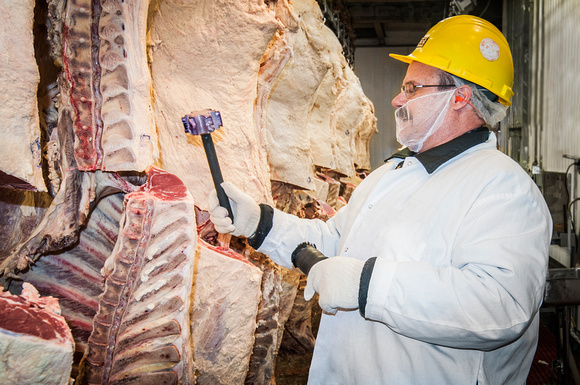
2. Temperature
Every time meat is handled, whether it’s moved, cut, or ground, the temperature of the material will go up. If the meat is being transferred from wherever you buy it into a vehicle and then into your restaurant (and possibly in and out of the refrigerator/ cooler once it’s there), the temperature is going to fluctuate.
Multiple fluctuations in temperature can diminish the quality of the meat. You’ll also have to keep in mind the temperature of the room and the grinder itself. For ground beef to stay fresh, it has to stay cold, just above freezing.
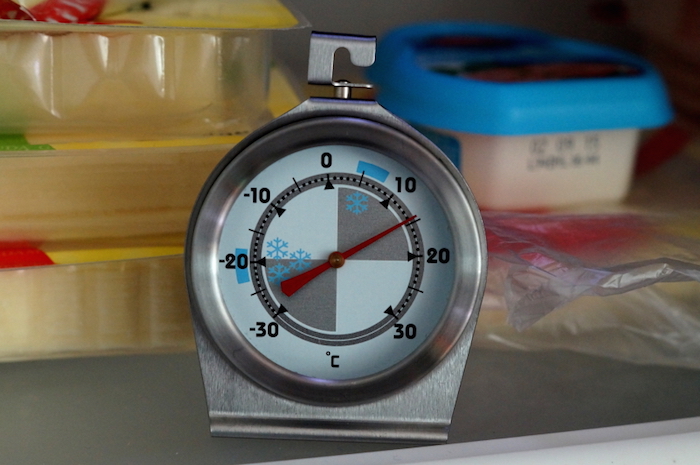
3. Liability
If you work in a restaurant, food safety is a top concern. Not only do you have to be concerned with serving good food, but you have to also make sure there are no airborne diseases or bacteria in your dishes.
Start by asking yourself these questions:
- How clean is the grinder you are using?
- How clean is the storage bin holding the meat before or after grind?
- How quickly is the ground beef used?
- Can you ensure the cleanliness of the employee grinding the beef?
Grinding your own beef increases your exposure to safety issues. All of these are factors will increase your liability and must be considered.
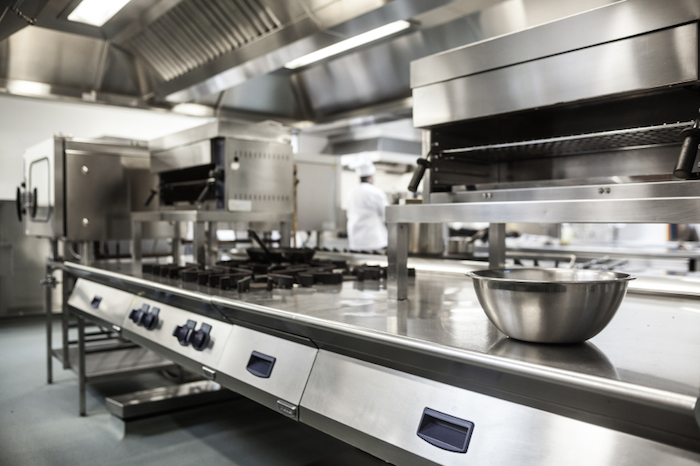
4. Inconsistency
One of the hardest things to get right in food service is making sure every dish comes out of the kitchen the same way every time. Diners want to know that if they return to a place they like, they will get the same experience. The same applies when they are recommending restaurants and dishes to friends and family.
How let down do you feel when you hear: “Maybe the Chef was having an off night?”
When you are grinding your own beef, it’s hard to guarantee so many things: portion size, thorough blending, temperature of the meat, age of the meat, blend proportions, the amount of handling of the ground beef, the time it takes an employee to complete the task, and so on.
The more of these items that you have to control, the great the chance of creating something inconsistent.
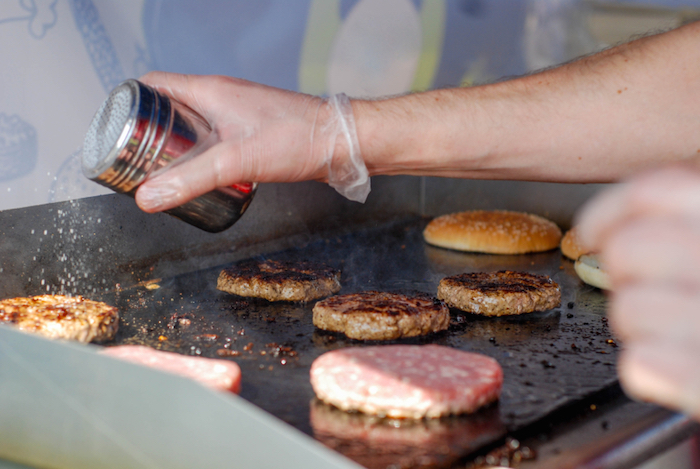
5. Labor Costs
What percentage of your overall budget is labor? You probably just cringed even thinking about it. Labor is one of the highest costs of a restaurant must face. That’s why we buy dish washing machines, electronic staff management programs, POS systems, and so on; to reduce labor costs and use it only where needed.
Grinding beef is a slow and delicate process. If you go to fast you can really destroy the meat and create a bad product. Bad product leads to bad customer experiences.
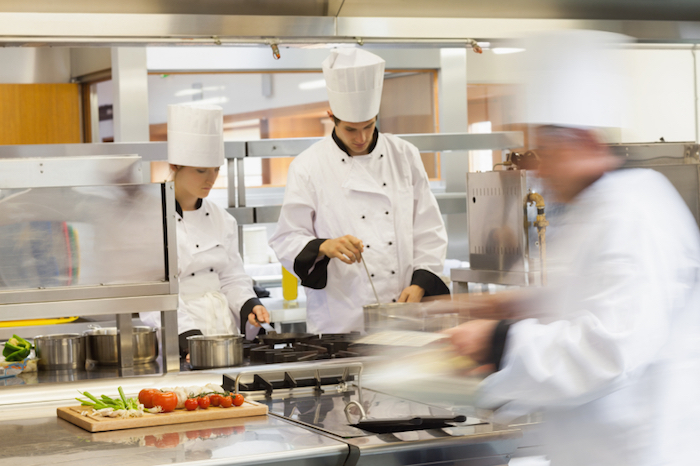
So what’s the solution? Many restaurants depend on pre-formed or pre-ground beef in lieu of grinding it in-house. By purchasing pre-ground meat, whether in bulk bags or preformed patties, you can reduce your risk of exposure to the aforementioned complications and ultimately raise your profit margins.

- Browse our products on the Schweid & Sons website.
- Where can you buy Schweid & Sons? Use our handy store locator here.
- Find more ground beef tips and recipes delivered right to your inbox by signing up for our email newsletter.
- Show us your favorite ground beef blend by tagging @schweidandsons or #schweidandsons on Instagram.

INSTAGRAM @SCHWEIDANDSONS
SCHWEID & SONS ON TWITTER
Tweets by @schweidandsons